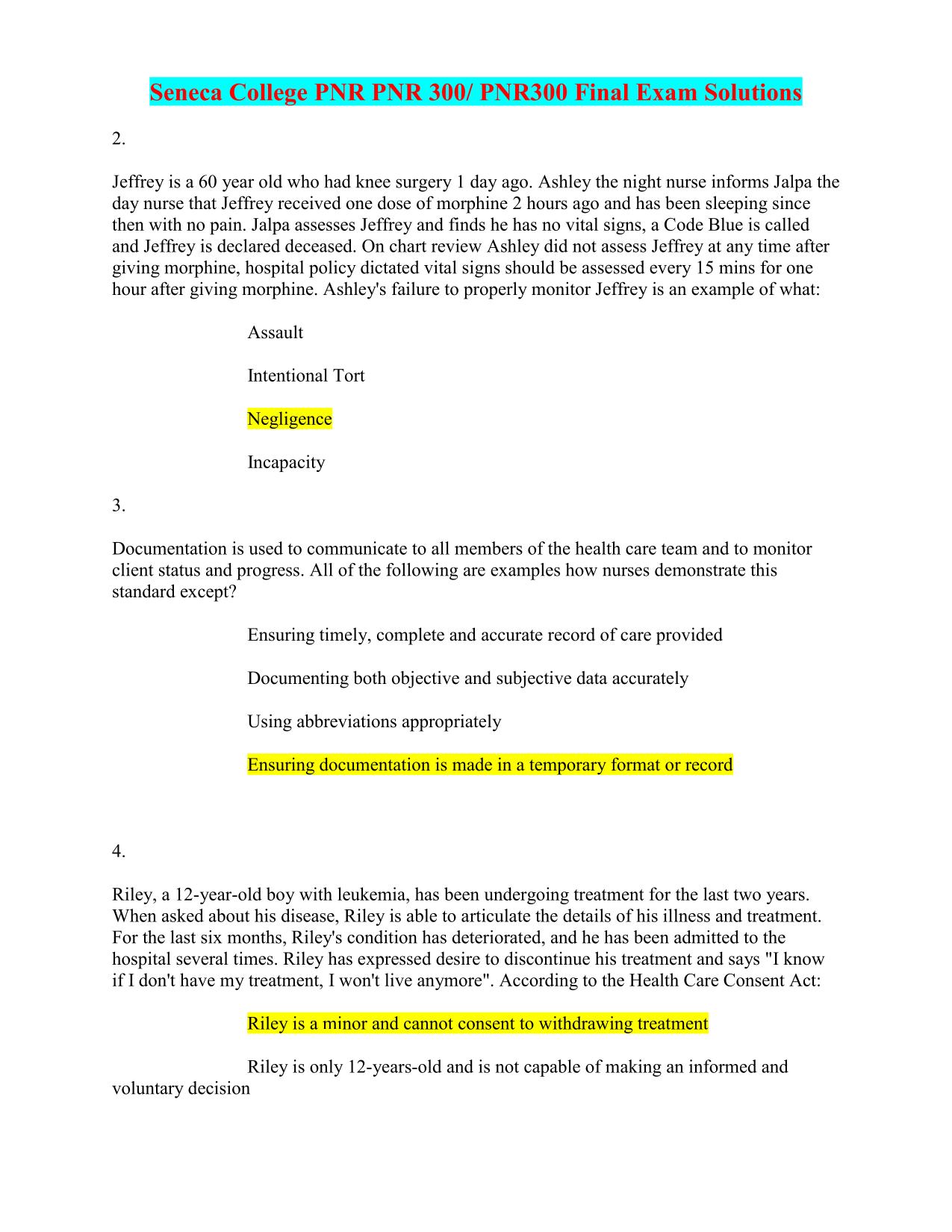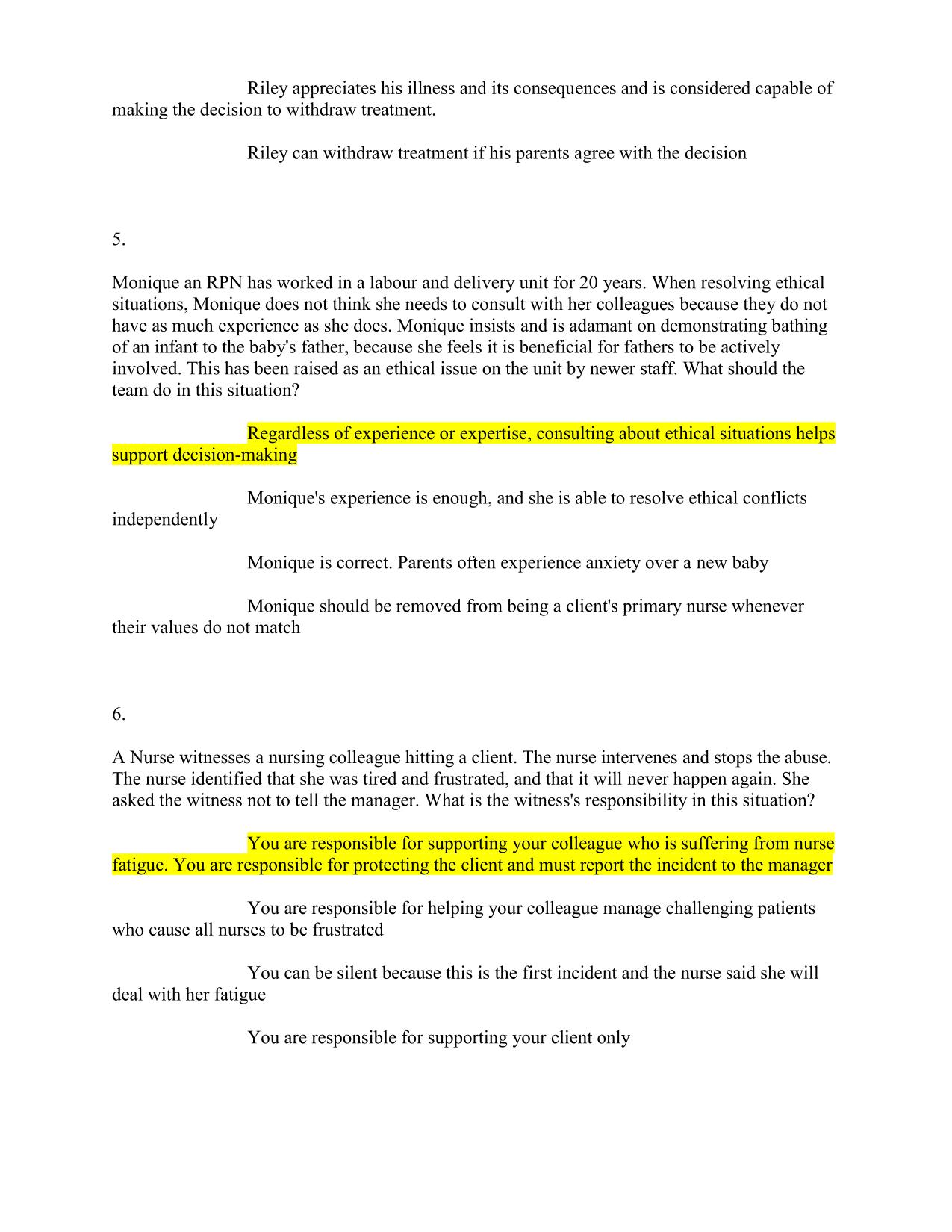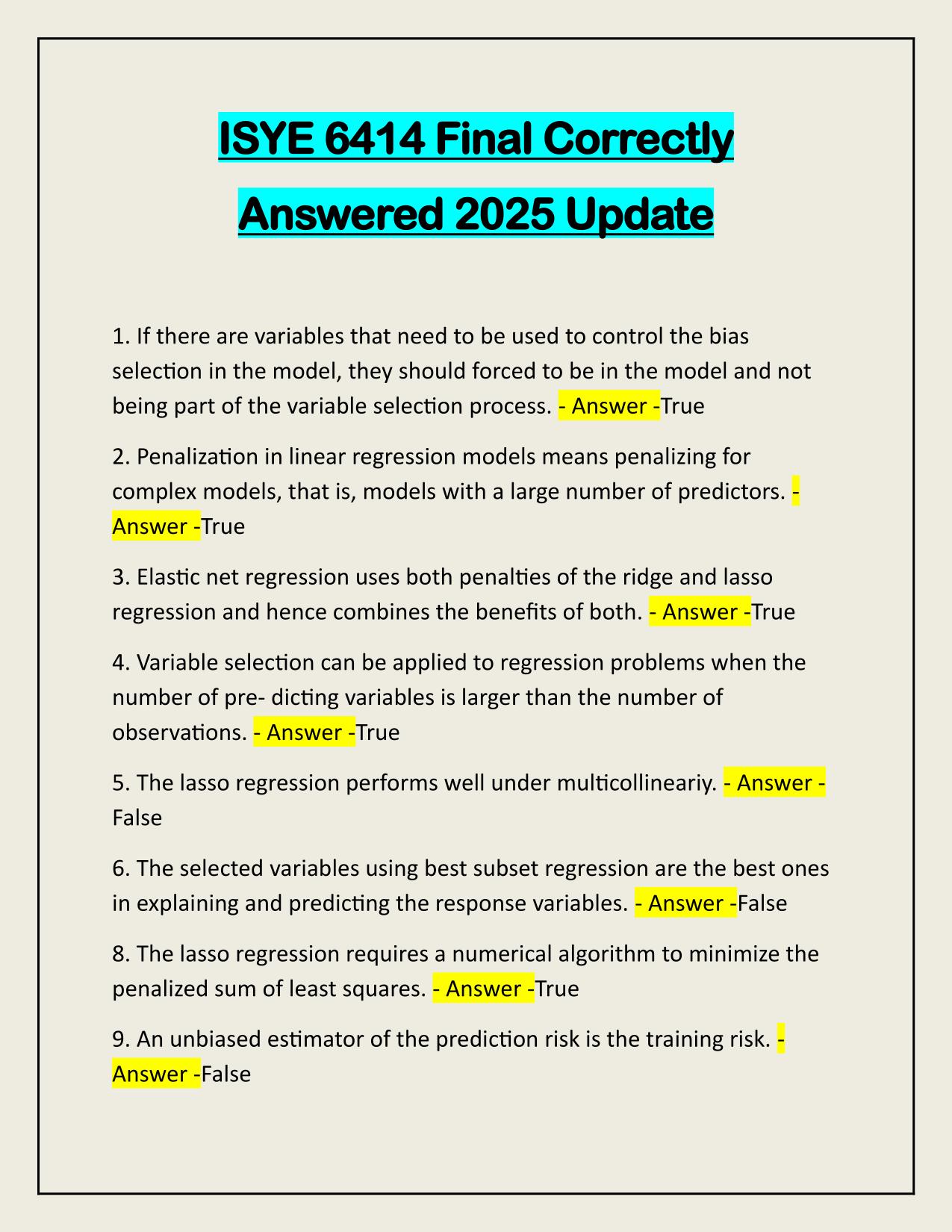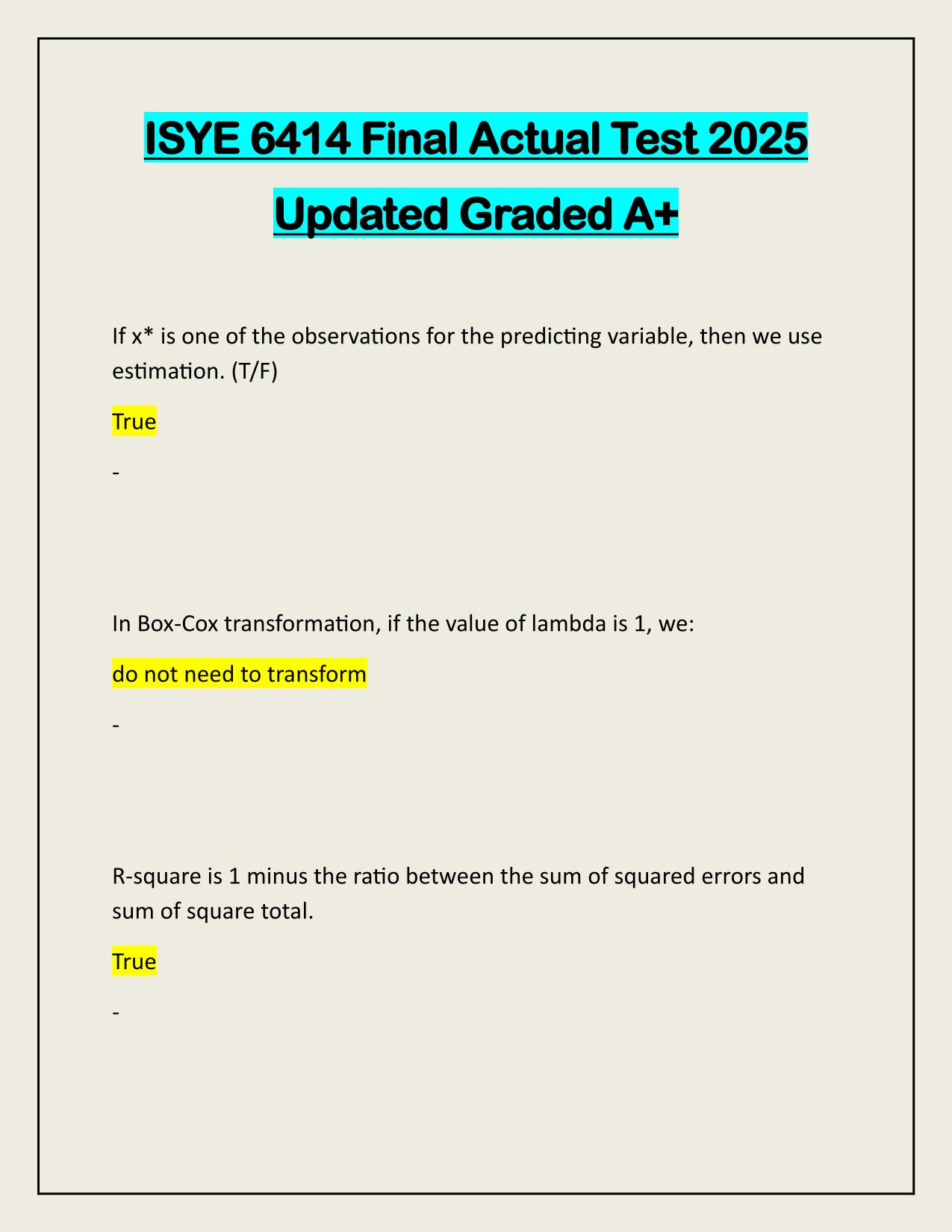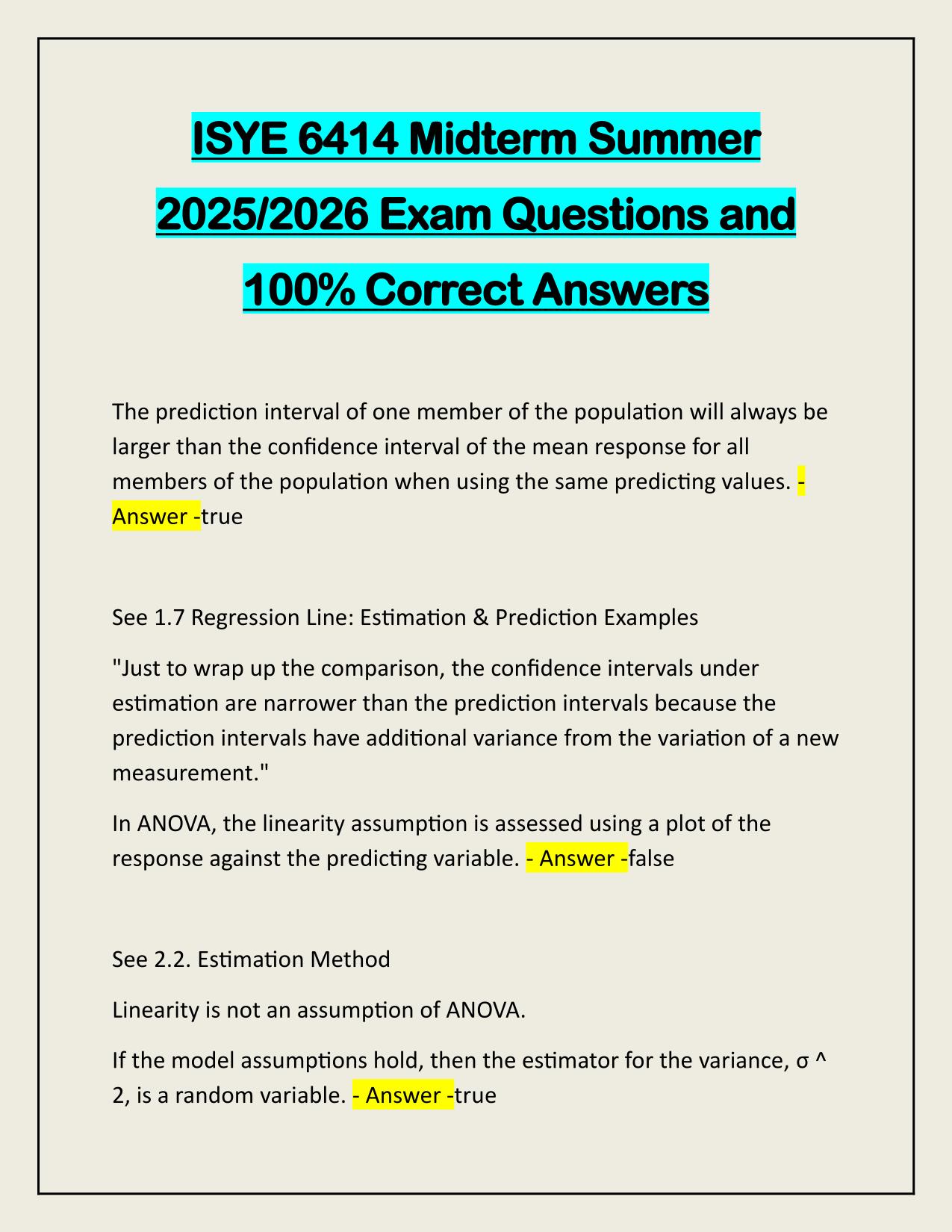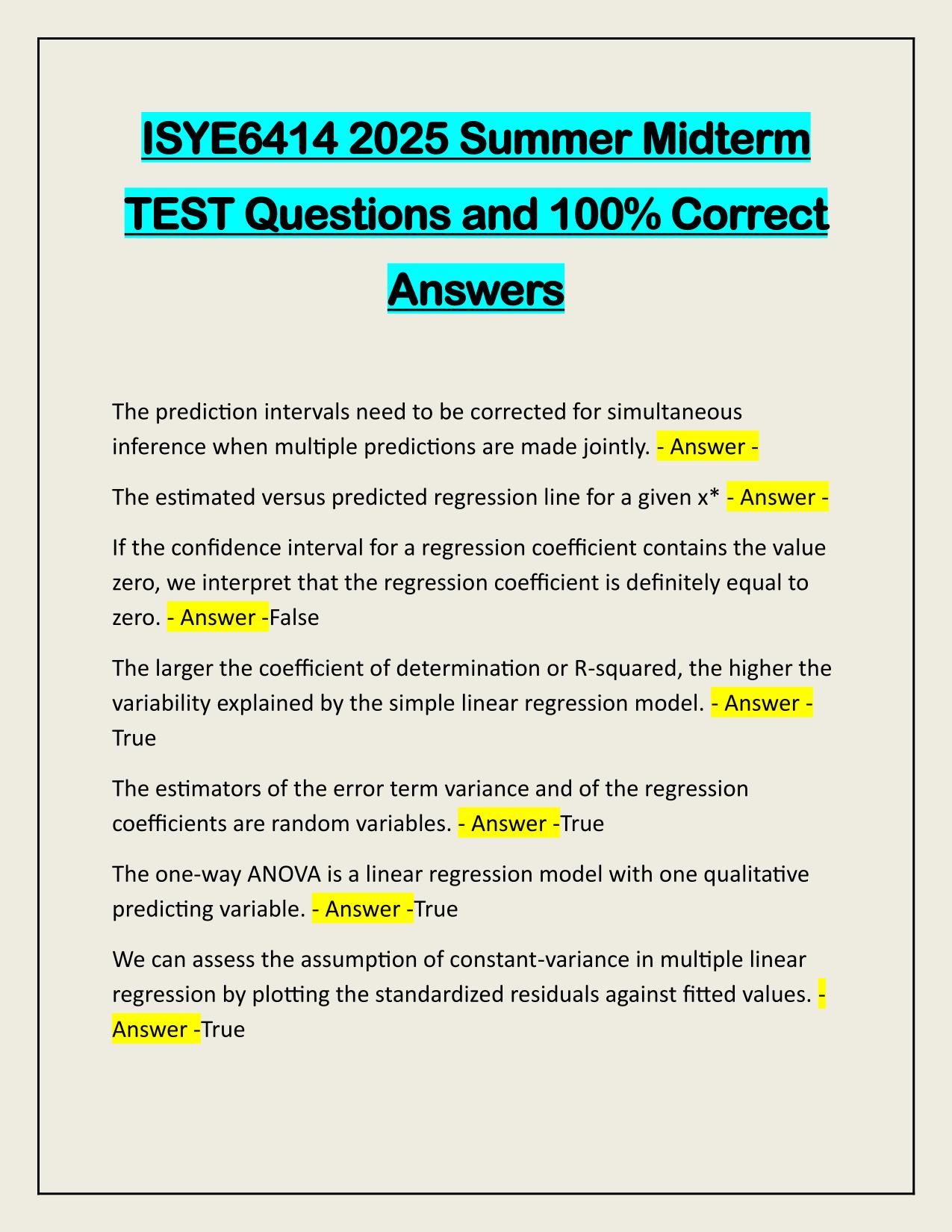Seneca College PNR PNR 300/ PNR300 Final Exam Solutions Latest Update 2025/2026 PDF Download
Course:
PNR 300
Institution:
PNR 300
Seneca College PNR PNR 300/ PNR300 Final Exam Solutions Latest Update 2025/2026 PDF Download Jeffrey is a 60 year old who had knee surgery 1 day ago. Ashley the night nurse informs Jalpa the day nurse that Jeffrey received one dose of morphine 2 hour...
After purchase, you get:
✅ Instant PDF Download
✅ Verified answer explanations
✅ Refund if not Satisfied
✅ Prepared for 2025/2026 test cycle
Document Information
| Uploaded on: | April 17, 2025 |
| Last updated: | May 27, 2025 |
| Number of pages: | 27 |
| Written in: | 2025/2026 |
| Type: | Exam (elaborations) |
| Contains: | Questions & Answers |
| Tags: | Seneca College PNR PNR 300/ PNR300 Final Exam Solutions Latest Update 2025/2026 PDF Download Jeffrey is a 60 year old who had knee surgery 1 day ago. Ashley the night nurse informs Jalpa the day nurse that Jeffrey received one dose of morphine 2 hours ago and has been sleeping since then with no pain. Jalpa assesses |
Seller Information

AdelineJean
User Reviews (0)
Exam (Elaborations)
$11.50
Add to Cart
100% satisfaction guarantee
Refund Upon dissatisfaction
Immediately available after purchase
Available in Both online and PDF
$11.50
| 0 sold
Discover More resources
Content Preview
Seneca College PNR PNR 300/ PNR300 Final Exam Solutions 2. Jeffrey is a 60 year old who had knee surgery 1 day ago. Ashley the night nurse informs Jalpa the day nurse that Jeffrey received one dose of morphine 2 hours ago and has been sleeping since then with no pain. Jalpa assesses Jeffrey and finds he has no vital signs, a Code Blue is called and Jeffrey is declared deceased. On chart review Ashley did not assess Jeffrey at any time after giving morphine, hospital policy dictated vital signs should be assessed every 15 mins for one hour after giving morphine. Ashley's failure to properly monitor Jeffrey is an example of what: Assault Intentional Tort Negligence Incapacity 3. Documentation is used to communicate to all members of the health care team and to monitor client status and progress. All of the following are examples how nurses demonstrate this standard except? Ensuring timely, complete and accurate record of care provided Documenting both objective and subjective data accurately Using abbreviations appropriately Ensuring documentation is made in a temporary format or record 4. Riley, a 12-year-old boy with leukemia, has been undergoing treatment for the last two years. When asked about his disease, Riley is able to articulate the details of his illness and treatment. For the last six months, Riley's condition has deteriorated, and he has been admitted to the hospital several times. Riley has expressed desire to discontinue his treatment and says "I know if I don't have my treatment, I won't live anymore". According to the Health Care Consent Act: Riley is a minor and cannot consent to withdrawing treatment Riley is only 12-years-old and is not capable of making an informed and voluntary decision
